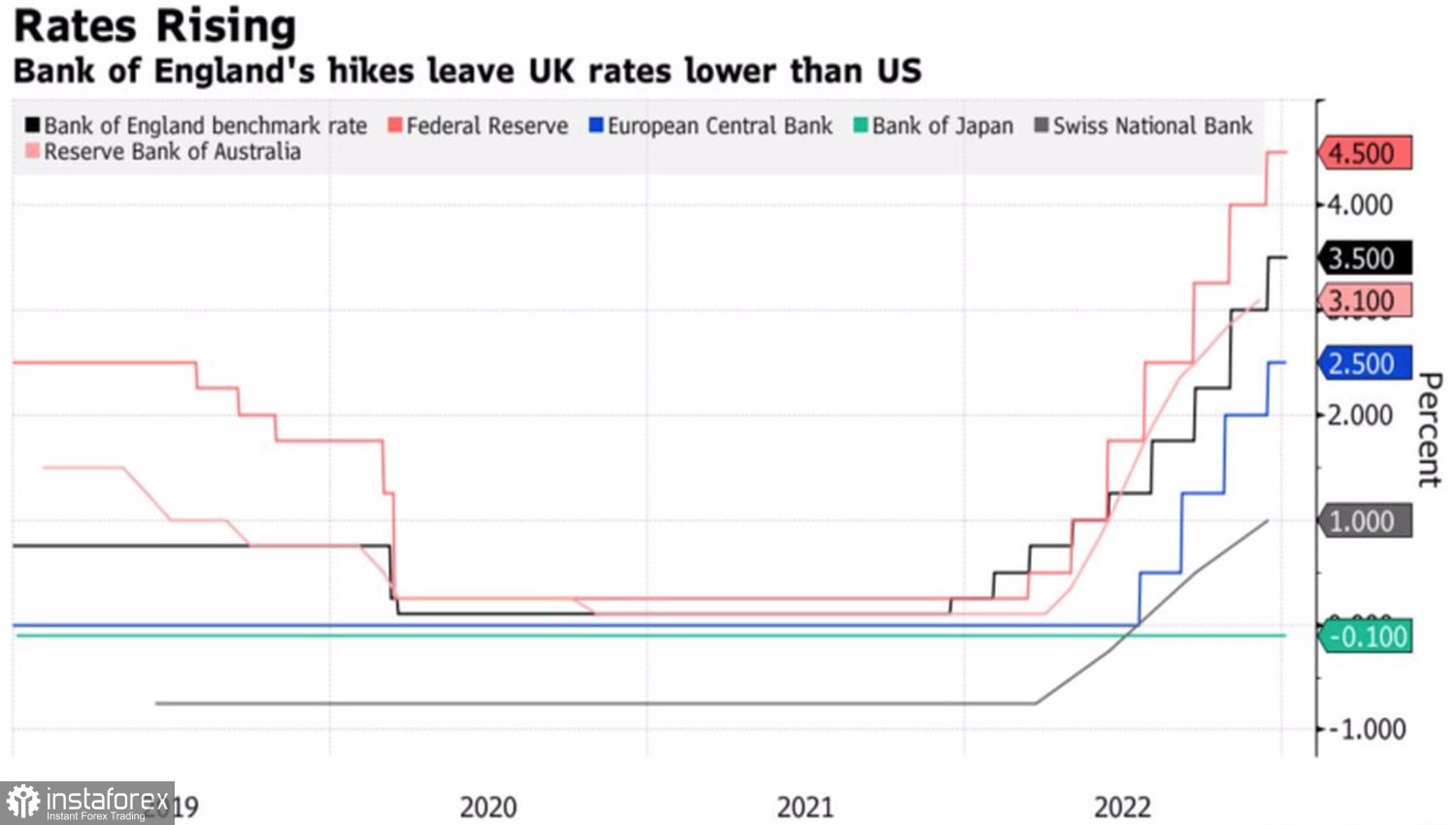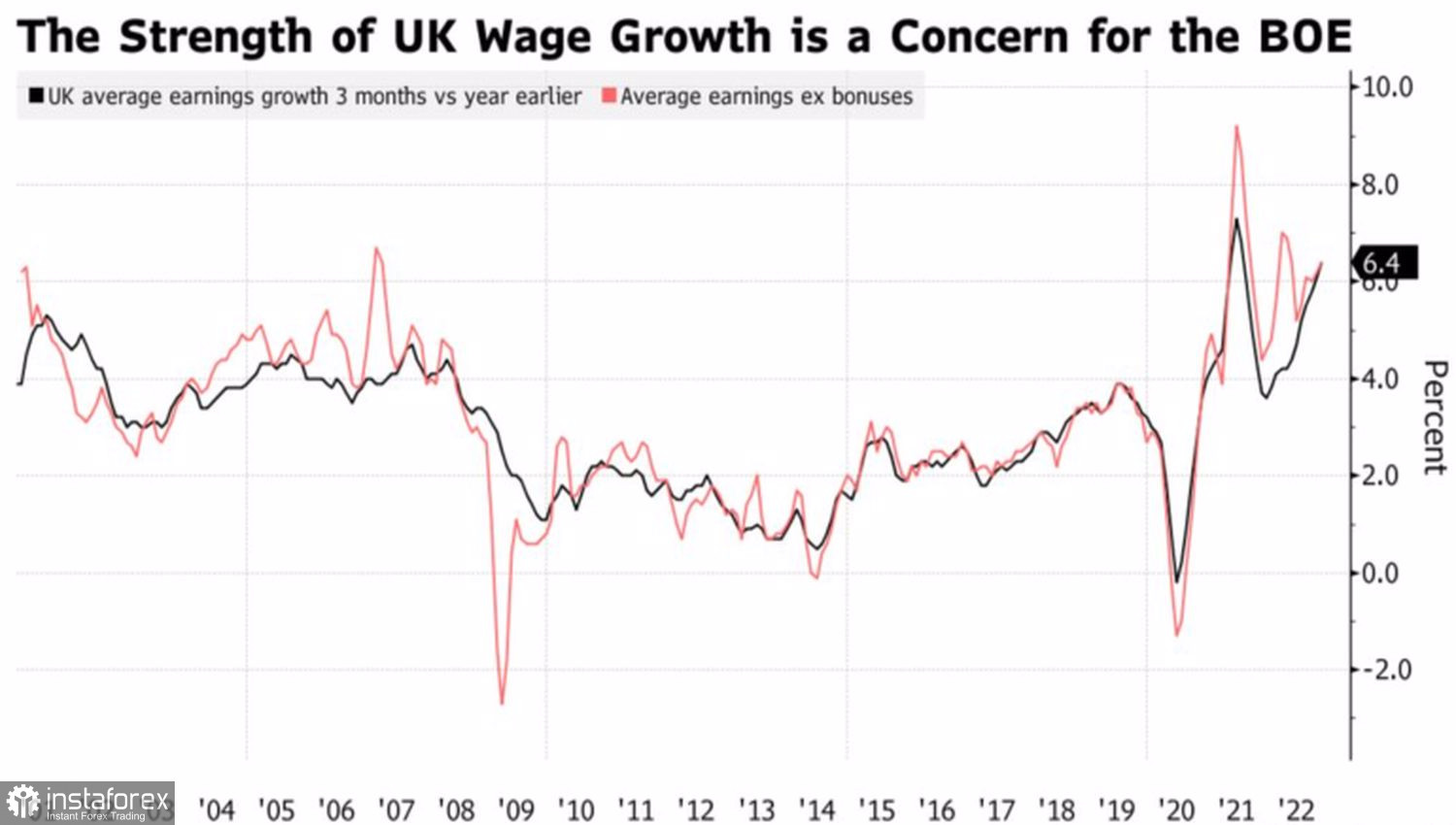Market players do not always have the right outlook on monetary policy, something that central banks occasionally point out. In November, markets were expecting the BoE's repo rate to hit 5.25%, which was then refuted by the British regulator. In January, Andrew Bailey did not comment on expectations of the derivative market that interest rates would peak at 4.5%. Could this mean the regulator is entirely satisfied with what is going on?
Investors are obviously concerned about what wil be the peak of the repo rate and how long will it hold at that level. This will shed light on the future trajectory of GBP/USD. For now, the pair is bracing for meetings of the Fed and the Bank of England, which are likely to raise the cost of borrowing by 25 and 50 bps, respectively. For the BoE, this will be the 10th consecutive and most aggressive monetary tightening in three decades. The rate will rise to 4%, the highest level since 2008. And there are reasons for that.
Interest rates of central banks

In the US the core PCE index, the Fed's preferred inflation gauge, slowed down to 4.4%, and Bloomberg experts expect average earnings to grow at the same rate in December, but the situation in Britain is different. Inflation in the UK is yet to decrease from its peak of 11.1% and exceeds the target fivefold. Average earnings excluding bonuses rose by 6.4% in autumn.
The Bank of England needs to do a much better job than the Fed. In such circumstances, it is unlikely that the BOE will begin discussing a slower pace of monetary policy tightening. There is a risk of high inflation becoming entrenched in the UK, so the BOE needs to remain firm.
Average earnings in the UK

On the other hand, Britain's economy is giving mixed signals, and negative signals are sparking recession fears. GDP data was positive in October and November, and Lloyds Business Barometer hit a six-month high. However, the PMI remains below 50 points, while a slump in business activity reported by the Confederation of British Industry suggests that there are serious problems.

The Bank of England's situation will not be any easier than it was last year, as Andrew Bailey said earlier. The regulator still needs to consider the risks of a GDP slowdown if it goes too far with monetary tightening. Unlike the Fed, its monetary tightening cycle is far from over which allows GBP/USD bulls to have a positive outlook on the pair. Its short-term performance will depend on the rhetoric of central banks.
From the technical point of view the consolidation of the pound sterling between $1.23 and $1.243 looks reasonable. While GBP/USD is trading above the moving averages and far from its fair value, the mood remains unambiguously bullish. In such a situation a rebound from the EMA, or a confident breakout above the resistance at 1.243 will provide an opportunity to open long positions, with pivot levels at 1.263 and 1.28 being targets.





















